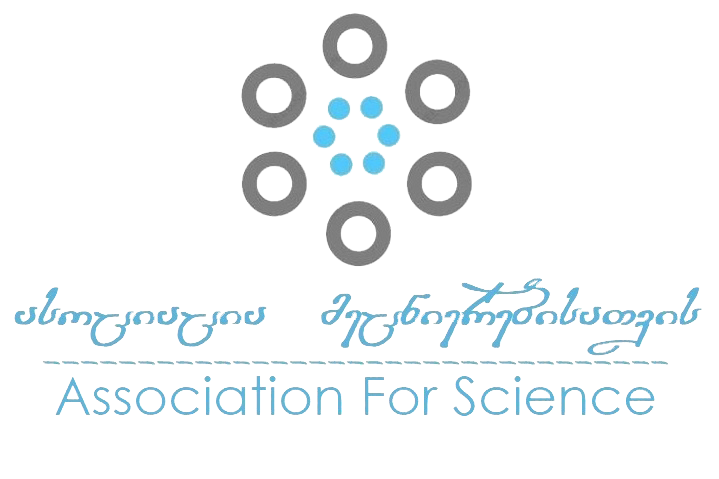Models of Post-Traumatic Memory in the Discourse of Feminine Narrative
DOI:
https://doi.org/10.52340/sou.2023.21.25Keywords:
Georgian and Abkhazian Female Authors, Post-traumatic Memory Models, Feminine Stylistic CharacteristicsAbstract
More than three decades have passed since the Russian-backed Georgian-Abkhazian war, yet Georgian-Abkhazian relations remain a focal point of discussion, not only for politicians and sociologists but also for writers. Numerous authors have sought to reflect the dramatic events of 1992-1993, employing both dominant and alternative narratives. This article examines the works of Georgian and Abkhazian female authors from the 1980s-1990s generation who did not witness the war firsthand. Their narratives act as a counterforce to the suppression of traumatic memory, resisting the impulse to forget. These authors highlight the ambivalent nature of the war’s participants by revisiting and reevaluating the past. The analysis is based on „Meeting“ (2023), a collection of stories by four Georgian and four Abkhazian authors.
In the book’s preface, the project’s creators emphasize that while war is rarely depicted directly in these stories, it is ever-present, looming as a destructive force that shaped the authors’ world-views for years to come. Indeed, the collection’s contributors share common themes, a unified conceptual approach to war and traumatic memory, and stylistic elements characteristic of feminine writing, such as nonlinear narratives, streams of consciousness, open endings, and autobiographical or subjective perspectives to convey personal experiences. However, the above do not homogenize their stylistic characteristics. On the contrary, the Georgian and Abkhaz female authors present issues of war trauma through distinct styles and perspectives, enriching the discourse with their diverse approaches.
References
ანფიმიადი (2023): დ. ანფიმიადი, ანგელინას ომი, წიგნში: შეხვედრა. აფხაზი და ქართველი მწერლების მოთხრობების კრებული, თბილისი;
არძინბა (2023): ა. არძინბა, კვანტური კავშირები, წიგნში: შეხვედრა. აფხაზი და ქართველი მწერლების მოთხრობების კრებული, გამომცემლობა „ქართული ლიტერატურული ინიციატივა“, თბილისი;
ბატიაშვილი (2023): ნ. ბატიაშვილი, მიფრინავენ თოლიები, წიგნში: შეხვედრა. აფხაზი და ქართველი მწერლების მოთხრობების კრებული, გამომცემლობა „ქართული ლიტერატურული ინიციატივა“, თბილისი;
გეგეშიძე (2023): თ. გეგეშიძე, ყველაფერი მიწის ბრალია, წიგნში: შეხვედრა. აფხაზი და ქართველი მწერლების მოთხრობების კრებული, გამომცემლობა „ქართული ლიტერატურული ინიციატივა“, თბილისი;
ეშსაუ (2023): ნ. ეშსაუ, თალი, წიგნში: შეხვედრა. აფხაზი და ქართველი მწერლების მოთხრობების კრებული, გამომცემლობა „ქართული ლიტერატურული ინიციატივა“, თბილისი;
ოლიკი (2016): ჯ. ოლიკი, მეხსიერება და იდენტობა პოსტსაბჭოთა სივრცეში: საქართველო და კავკასია აღმოსავლეთ ევროპის კონტექსტში. 10.-2016.¬ თბილისი. ელექტრონული რესურსი: https://iliauni.edu.ge/.../profesor-djefri-olikis-sadjaro-leqcia-mexsiereba-dinamikashi.pag.
ტოგონიძე (2023): ე. ტოგონიძე, განახლება, წიგნში: შეხვედრა. აფხაზი და ქართველი მწერლების მოთხრობების კრებული, გამომცემლობა „ქართული ლიტერატურული ინიციატივა“, თბილისი;
შეხვედრა (2023): შეხვედრა, აფხაზი და ქართველი მწერლების მოთხრობების კრებული, გამომცემლობა „ქართული ლიტერატურული ინიციატივა“, თბილისი;
Nora (1989): P. Nora, Between Memory and History: Les Lieux de Mémoire. Representations, No. 26, Special Issue: Memory and Counter-Memory. (Spring, 1989), Representations is currently published by University of California Press. Stable URL: http://links.jstor.org/sici?sici=0734601-8%28198921%290%3A26%3C7%3ABMAHLL%3E2.0.CO%3B2-N



